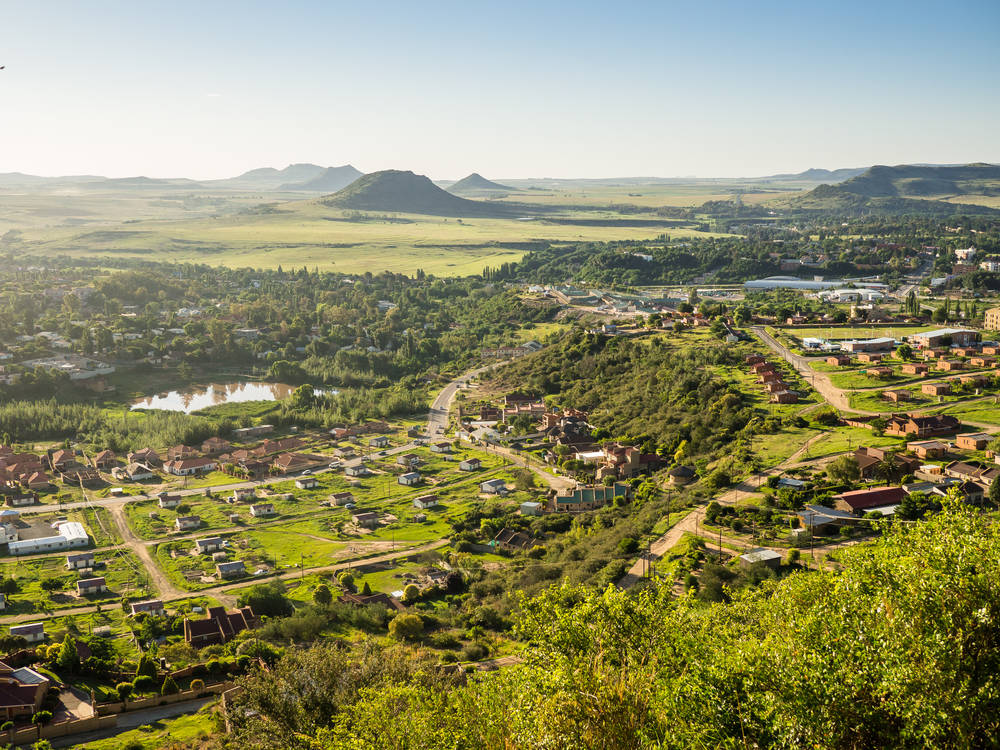We use Cookies. Read our Terms
- News
- Improving access to water and sanitation in Lesotho
Improving access to water and sanitation in Lesotho

Photo: Shutterstock
In 2003, OFID received a request from the government of Lesotho for financial assistance to rehabilitate water infrastructure and extend distribution networks in the capital city Maseru. The project that followed saw the installation of 300 kilometers of pipeline along with connections and meters for thousands of homes. Two new reservoirs were built, with a total storage capacity of approximately 3,750 cubic meters, and two existing reservoirs were enlarged. Two pumping stations were constructed, while another was completely upgraded.
OFID joined with the Arab Bank for Economic Development to co-finance the project, located in the north- and southwest zones of Maseru. Previously in the capital, home to more than 450,000 people, only around one-half of residents had an adequate supply of drinking water. Others, especially those living in the peri-urban areas, had to purchase water from vendors at inflated prices, or wait in long queues at public water points.
The project, executed by WASCO, the country’s water and sewerage company, was a resounding success. Syahrul Luddin, OFID Country Officer for Lesotho, explained that after the project’s completion in 2012, more than one million people in the area could access safe water and sanitation: “Women and children, who had previously carried the burden of fetching water, have benefited most from the improvements,” he said.
Households connected to the water supply network are not only able to save money, as they no longer have to pay the high prices demanded by water resellers, but the project has also reduced the use of unsafe water sources and the inadequate sewerage system. “The direct impact on people’s health was immediate,” said Luddin. In addition, the project also contributed to economic development, since it provides water to support the garment manufacturing industry, he explained.
Impediments to the economic development of Lesotho have included the lack of natural resources, vulnerability to drought, and serious land shortages, combined with the country’s dependence on South Africa. Made up mostly of highlands, many of Lesotho’s villages can be reached only on horseback, by foot or light aircraft. However, water is one of the country’s greatest natural assets. It’s a source of wealth and prosperity for the 2.1 million people of the tiny South African enclave.
The government of Lesotho understandably prioritizes the development of the water sector. After all, it contributes around 10 percent to the Kingdom’s overall GDP. A Water Sector Policy—aimed at improving the management of water resources, the provision of water supply and sanitation services, and overall coordination within the sector—was adopted some years ago.
However, the lack of an adequate supply infrastructure and the uneven distribution of available water can still prove an impediment to the country’s socioeconomic development. Many rural people and urban poor still do not have sustainable access to safe drinking water and sanitation. Moreover, long dry periods can prove disastrous for farmers trying to eke out a living in marginal areas and leave the inhabitants of urban slums vulnerable to disease due to poor sanitation.
Since commencing cooperation with Lesotho in 1976, close to 40 percent of OFID’s support to the mountain Kingdom has helped fund projects in the water sector. These funds have been used to construct vital infrastructure including dams, reservoirs, water treatment plants, pumping stations and distribution networks.
With a GDP per capita (in current US$) of a little over $986 in 2014, a life expectancy at birth of around 49 years (2010-2015) and an urban population that represents just over a quarter of the total population (2015) according to UN data, there remain significant development opportunities to pursue. OFID is currently appraising a follow-up opportunity to further support the Maseru Water Supply Project.